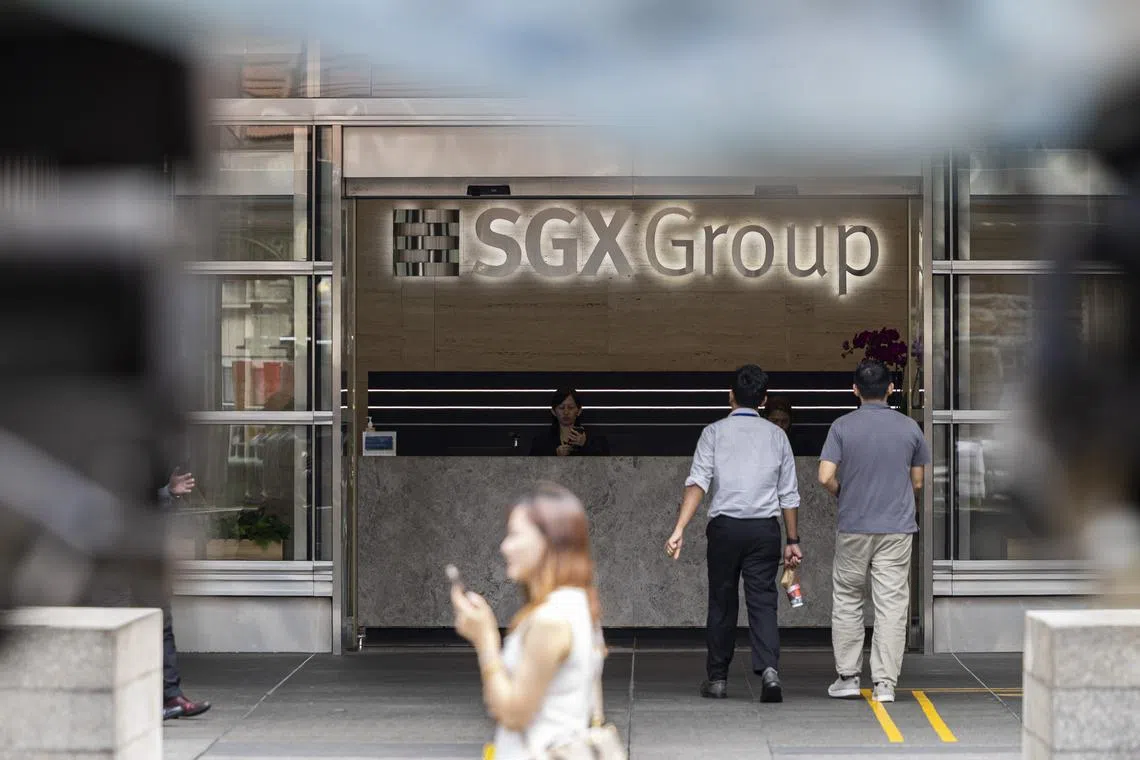Singapore shares fall amid escalating Israel-Iran conflict; STI down 0.1%
Sign up now: Get ST's newsletters delivered to your inbox

Across the broader market, gainers beat losers 246 to 226, after 948.9 million securities worth $1 billion were traded.
PHOTO: ST FILE
Ranamita Chakraborty
Follow topic:
SINGAPORE - Stocks on the local bourse ended slightly lower on June 16 on the back of escalating tensions between Israel and Iran. The benchmark Straits Times Index (STI) slid 0.1 per cent or 2.96 points to 3,908.46. Across the broader market, gainers beat losers 246 to 226, after 948.9 million securities worth $1 billion were traded.
The biggest winner on the STI was ST Engineering, which was up 2.1 per cent at $7.96.
At the other end of the index was Singapore Airlines, which fell 1 per cent to $6.87. The drop comes after shares tumbled on June 13
Meanwhile, local bank counters ended in the red. DBS fell 0.7 per cent to $44.16, while UOB edged down 0.4 per cent to $34.82, and OCBC slid 0.2 per cent to $16.02.
Elsewhere in the region, market sentiment was more positive. South Korea’s Kospi and Japan’s Nikkei 225 gained 1.8 per cent and 1.3 per cent, respectively. Hong Kong’s Hang Seng Index rose 0.7 per cent and the Bursa Malaysia Kuala Lumpur Composite Index was up 0.1 per cent.
Mr Christian Gattiker, head of research at Julius Baer, said that for markets, the Israel-Iran conflict “remains within the realm of Geopolitical 101: a sharp, but ultimately transient shock – unless escalation accelerates meaningfully from here”.
He noted that unless the situation rapidly expands, such as through a disruption in the Strait of Hormuz, direct US or Saudi Arabia involvement, or widespread proxy engagements, the market is unlikely to adjust beyond the initial risk premium.
Until then, he said, it remains a tactical event rather than a strategic one, providing traders with an opportunity to take profits and reassess their positions.
“The key for investors is not just whether the conflict continues, but whether it intensifies in scope or duration,” said Mr Gattiker. THE BUSINESS TIMES

